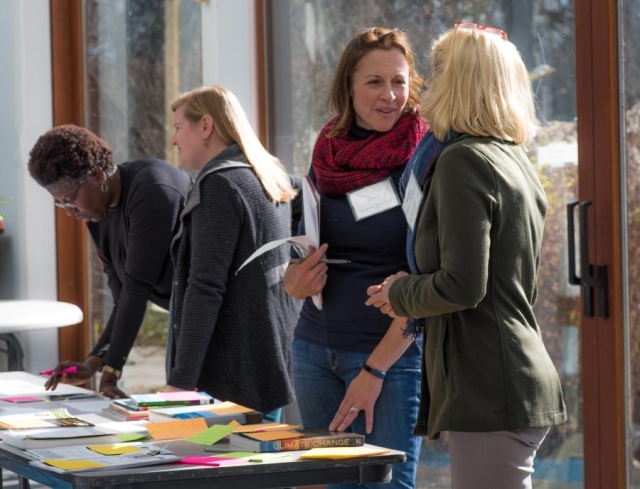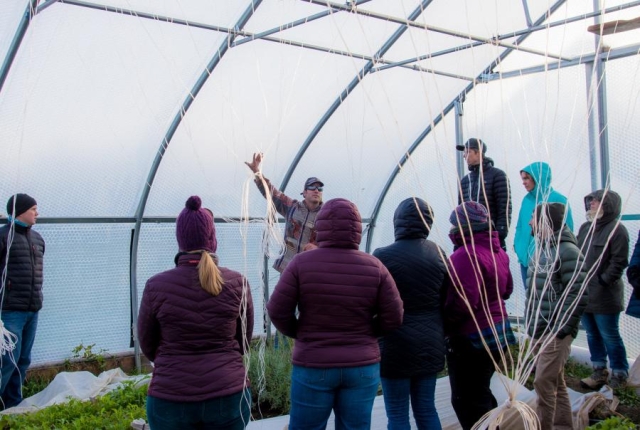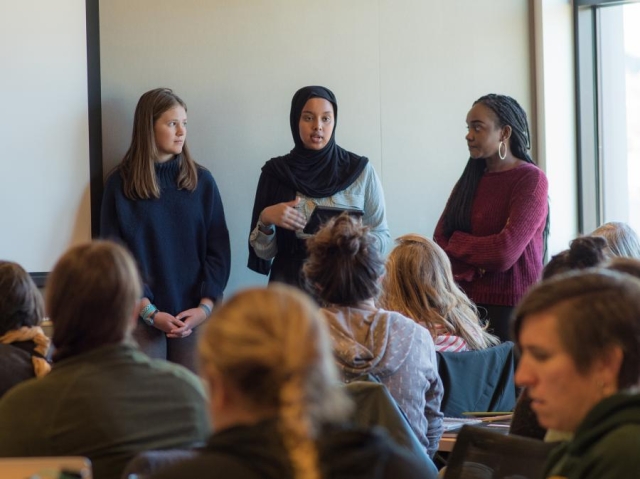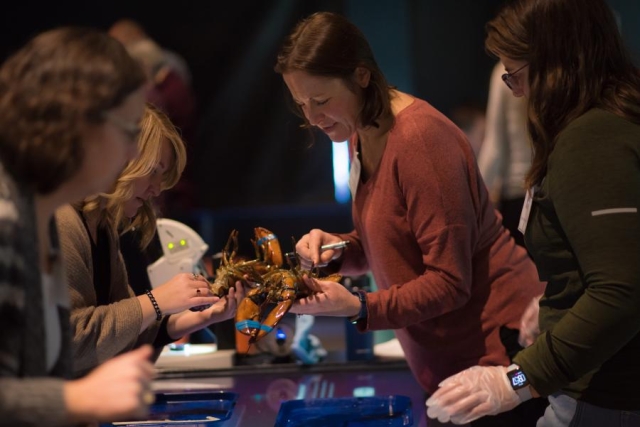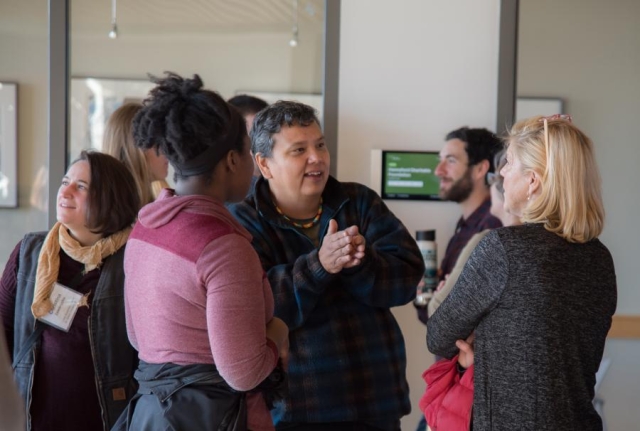Climate change is the sustainability challenge of our time. As an organization dedicated to education for sustainability, Shelburne Farms must address this issue not just on our farm, but with our educators and partners. Understanding climate change and having the skills to address its many facets are key to making positive change. And while learning about climate change alone does not always lead individuals to act, pairing learning with opportunities to implement solutions can build an individual’s sense of agency so that they do take climate action!
We have found that teachers are eager to take on all of the above — the learning, the skills practice, the solutions, and the actions! But they need support. According to a recent National Public Radio poll, 86% of teachers agree that climate change should be taught, but many don’t include it in their curriculum because they don’t feel they know enough about the topic. Research also shows that most climate change education policies focus on K-12 students and not adult learners — like their teachers. Basically, the consensus we hear from teachers is that students are asking for more climate change education and teachers feel woefully unprepared.
Our Climate Resiliency Fellowship is helping to address these professional learning needs of educators. Programs like it have been shown to boost teacher confidence; knowledge about climate change and solutions; and strengthen teaching practices, so we feel confident that the Fellowship is heading in the right direction!
What is the Climate Resiliency Fellowship? It is a 12-month program for K-12 educators from New England who are committed to learning and teaching about climate change. At regular gatherings, both virtual and in person, fellows hear from varied presenters, engage in hands-on experiences, attend workshops, visit partner sites, and spend time with experts and local stakeholders. The gatherings integrate themes such as building knowledge, pedagogy and practice, youth voice, service learning, interdisciplinary approaches, communication, and self care. Educators are supported in applying their learning and experiences to collaboratively design and refine climate-action projects with their students.
Through the Fellowship, we are seeing teams of educators working across disciplines to plan and implement lessons in (and outside of) the classroom using climate change as an integrating concept. Teachers are communicating about how to engage students with the different facets of climate change as it relates to each of their subjects. For instance, in one school teachers are each addressing climate change in their classes while building the skills and proficiencies relevant to that discipline; in another school a climate action project unifies the classes, serving as a place to bring all the disciplines together.
The recent gathering in mid-coast Maine (November, 2019) gives insight into our approach and how Shelburne Farms engages teachers in climate change education.
